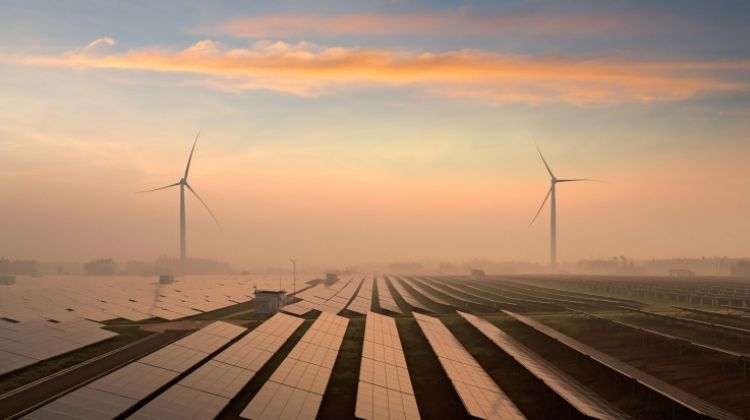The Energy and Climate Intelligence Unit’s (ECIU) Winter Power Tracker has confirmed that wind, solar and hydro generated 47TWh of energy between 1 October 2022 and 28 February 2023 – enough to power 55% of UK homes for a year.
It would require roughly 95TWh of gas to generate the same amount of power in that time period.
According to the ECIU, this means that renewable generation will displace over a third (35%) of the UK’s annual gas demand for power generation.
Renewables generated 4TWh in the same period the previous year, which represents the growth of renewables in the UK which, according to Secretary of State for Energy Security and Net Zero, Grant Shapps, increased by 3.4GW in 2022.
Increasing renewable generation allowed the UK to supply its surplus energy to the rest of Europe in 2022, becoming a net electricity exporter for the first time since 2010. Exports were eight times higher in Q3 2022 than the same quarter the previous year alone.
The ECIU also predicted that the UK’s battery energy storage (BESS) capacity will grow 14-fold this year with as its pipeline increased five times between winter 2021/22 and winter 2022/23.
“We’re seeing the old electricity system give way to the new, with renewables becoming the backbone and displacing more and more gas. Battery storage is ramping up faster than expected, boosting the UK’s energy security and leaving us less exposed to international gas markets,” said Jess Ralston, Head of Energy at ECIU.
“Lifting the ban on onshore wind will help. But with the US and the EU going gangbusters for renewables, eyes are on the Government, the Chancellor and the Budget to decide on how the UK stays an attractive market for the investments that will ultimately bring down bills.”
Despite renewables limiting electricity wholesale costs, the ECIU warned that the UK still has the highest gas dependency in Europe – 40% of its power and 85% of domestic heating is supplied by gas. This means that UK households have been “worst hit” by rising energy costs said the non-profit organisation.
Household bills in the UK will continue to rise despite the significantly lower price cap (£3,280) announced by Ofgem earlier this week as the Energy Price Guarantee (EPG) is set to increase to £3,000 in April.
Earlier this week the energy sector called on the government to act on the surplus granted by the lower price cap and keep the EPG at the current level.
Concluding on a positive note, the ECIU revealed that the lower price cap does mean that Contracts for Difference schemes will give back £520 million this winter, helping to reduce household bills in the long term.






